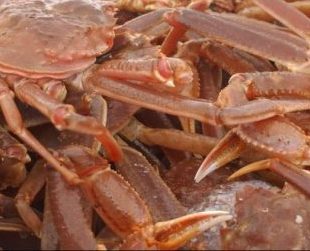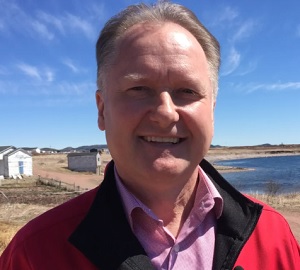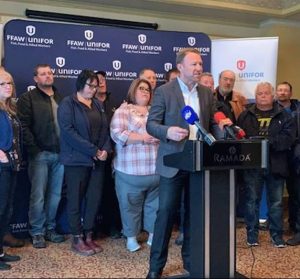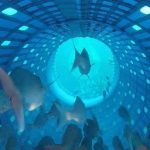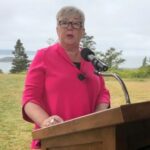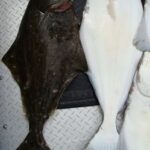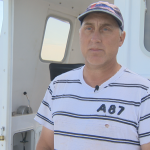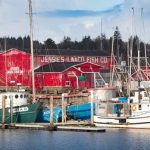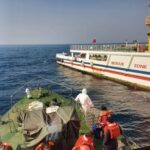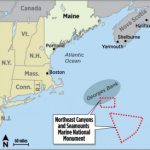Tag Archives: Royal Greenland
Fisheries Minister Rejects Opposition’s Approach to Processing Controversy, Hints at ‘Significant’ Regulatory Changes
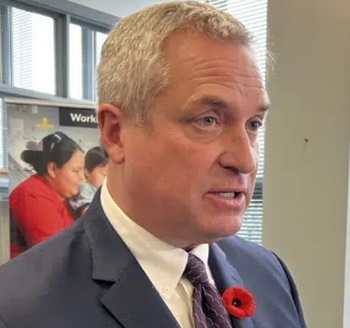 Provincial Fisheries Minister Gerry Bryne is hinting that some “significant changes” could be coming in relation to fish processors who run afoul of the regulatory process. Royal Greenland, which owns Quin-Sea, is currently before the Labour Relations Board after the Association of Seafood Producers filed an urgent application against the company. According to the FFAW, Royal Greenland failed to provide sales data on 5-8 ounce sections of crab delivered to Boston as required for a third-party review of 2024 snow crab sales. more, >>CLICK TO READ<< 07:25
Provincial Fisheries Minister Gerry Bryne is hinting that some “significant changes” could be coming in relation to fish processors who run afoul of the regulatory process. Royal Greenland, which owns Quin-Sea, is currently before the Labour Relations Board after the Association of Seafood Producers filed an urgent application against the company. According to the FFAW, Royal Greenland failed to provide sales data on 5-8 ounce sections of crab delivered to Boston as required for a third-party review of 2024 snow crab sales. more, >>CLICK TO READ<< 07:25
Royal Greenland Freezer Trawler Damaged After Iceberg Collision
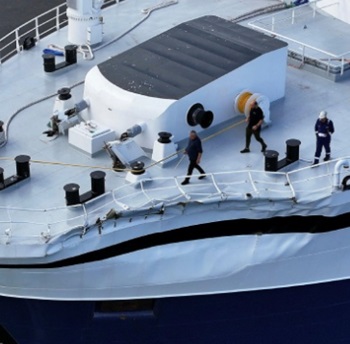 Royal Greenland has confirmed that its trawler, F/V Tuugaalik, was involved in a minor collision with an iceberg last weekend while navigating between two fishing grounds in dense fog. The ship is one of the newest and most elegant freezer trawlers in Europe, boasting a crew of 24. The incident occurred without any serious consequences, and both the crew and the vessel remained safe. Elías Kristjánsson, Tuugaalik’s representative in Iceland, told mbl.is, that despite the collision, there were no accidents among the crew. Following the collision, Tuugaalik sailed to Iceland for inspection and any necessary temporary repairs. Lindstrøm expressed hope that the trawler and its crew would soon return to sea to resume their fishing activities. more, F/V >>CLICK TO READ<< 14:43
Royal Greenland has confirmed that its trawler, F/V Tuugaalik, was involved in a minor collision with an iceberg last weekend while navigating between two fishing grounds in dense fog. The ship is one of the newest and most elegant freezer trawlers in Europe, boasting a crew of 24. The incident occurred without any serious consequences, and both the crew and the vessel remained safe. Elías Kristjánsson, Tuugaalik’s representative in Iceland, told mbl.is, that despite the collision, there were no accidents among the crew. Following the collision, Tuugaalik sailed to Iceland for inspection and any necessary temporary repairs. Lindstrøm expressed hope that the trawler and its crew would soon return to sea to resume their fishing activities. more, F/V >>CLICK TO READ<< 14:43

N.L. inshore crab boats accuse Royal Greenland of giving them the cold shoulder
In a crab fishing season that has been contentious from the start, allegations continue to be levelled by Newfoundland and Labrador fish harvesters against processing companies. The latest accusation is against Royal Greenland, the Danish-owned company that owns three processing plants in the province. A handful of harvesters took to social media in recent days, posting on the Fishermen’s Forum Facebook Page, that Royal Greenland has been refusing to buy crab from some boats in the under 40 ft fleet. However, Simon Jarding, manager of Royal Greenland operations in Newfoundland and Labrador, says those allegations are not accurate. >click to read< 12:21
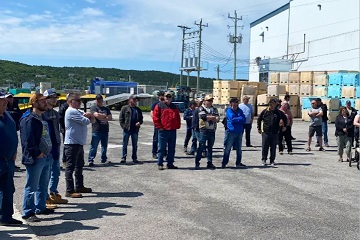
Profit over people: Royal Greenland isn’t here to help Newfoundlanders
Jarding’s assertion that Royal Greenland truly wants product landed and processed in Newfoundland and Labrador has proven to be categorically false. The company, a Crown corporation of the country of Greenland, flatly refused to buy shrimp from NL harvesters at a fair price earlier this summer, telling harvesters if they wanted to fish, they must bring their product all the way to Quebec if they wanted a buyer. Why could the Royal Greenland plants in Quebec pay double the price for the same product? Why did Royal Greenland refuse to pay the same to NL harvesters? These are the key questions Mr. Jarding has conveniently sidestepped. >click to read< 11:45
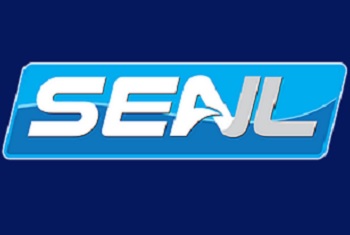
SEA-NL: Province to review foreign investment in fishery
SEA-NL is encouraged by news that the province has finally commenced a review of its policies related to foreign investment in the fishery, with consultations planned for this fall. “Our message now is for complete transparency,,, Fisheries, Forestry and Agriculture Minister Derrick Bragg wrote SEA-NL on Friday, Sept. 3rd, to reveal his department has begun work on a review of its policies regarding foreign ownership in the fishery. Bragg advised that consultations with industry stakeholders are scheduled for late October-November. The minister’s letter was in response to one written by Cleary to Premier Furey on Aug. 23rd requesting the province investigate foreign control/corporate concentration in the fish processing sector. >click to read< 10:29
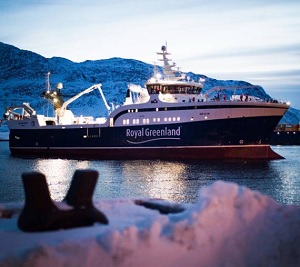
A terrible deal for the fishery
Sometime in the past few weeks, the minister of Fisheries, Forestry and Agriculture signed off on the transfer of the processing licenses owned by Quinlan Brothers to Royal Greenland. Royal Greenland is now the largest, most dominant fish processing company in this province. The purchase of Quinlan Brothers by Royal Greenland and its subsequent approval by the provincial government was completed with little debate and almost no context. The inshore fishery in this province is extremely valuable. In 2019, the total value was approximately $1 billion, with about half going to the inshore fish harvesters. This is new money into our economy, largely into rural communities, and created with little to no provincial government support. The total value of the fishery is approximately $1 billion per year. Royal Greenland is one of the largest seafood companies in the world. But it has just one shareholder — the Government of Greenland. >click to read< 17:01

Quinlan Bros. to be sold to Royal Greenland in another N.L. fishery shakeup
In a stunning move, the owners of Quinlan Brothers Limited — one of Newfoundland and Labrador’s largest and best-known seafood processing companies — have announced the proposed sale of their company to Royal Greenland. The sale involves the transfer of licenses, so it is subject to provincial government approval. The deal is expected to close later this year, following the end of the 2020 processing season. If approved, the deal will mean that Quinlan Brothers Limited and Quin-Sea Fisheries Limited will once again be under common ownership. >click to read< 11:57
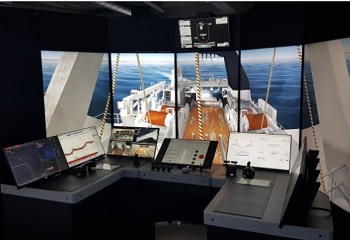
Fishing companies donate millions to new Kongsberg Digital fishery simulator in Greenland
Nine commercial fishery companies have donated in total DKK 3.2 million to Danish training institute, the Greenland Maritime Center, for investment in a state-of-the-art K-Sim Fishery simulator from Kongsberg Digital. A first of its kind in the Kingdom of Denmark, the K-Sim Fishery simulator will enable students to gain vital competence in diverse fishery situations, including aft deck operations, and is scheduled for installation in 2020. >click to read< 14:30

FISH-NL: Escalating war between fish processors/buyers exposes fact inshore harvesters have been ‘royally screwed’ on price of fish
The Federation of Independent Sea Harvesters of Newfoundland and Labrador (FISH-NL) says the existing system of setting fish prices in the province is broken beyond repair, and must be scuttled. “What’s absolutely clear from the escalating fight between processors and buyers is that inshore harvesters have been getting royally screwed on the price of fish,” says Ryan Cleary, President of FISH-NL. On Jan. 2, the Seafood Processors of Newfoundland and Labrador (SPONL) — representing 15 small, mostly lobster processors/buyers with a combined export value of roughly $40 million — lodged a complaint against Royal Greenland with the federal Competition Bureau, and asked for an intervention. >click to read<22:02

FISH-NL questions whether complaints against Royal Greenland smokescreen to cover the fact local processors underpaying fishermen
The Federation of Independent Sea Harvesters of Newfoundland and Labrador (FISH-NL) questions whether the Dwight Ball government supports inshore harvesters being paid top dollar for their fish. “Local processors and buyers have been screaming bloody murder because Royal Greenland is paying harvesters more for their product — forcing them to increase their prices,” says Ryan Cleary, President of FISH-NL. “That tells us the minimum negotiated price is too low, and reinforces our stand that the province should open the door to outside buyers.” “It’s time for the provincial government and the FFAW-Unifor to say which side they’re on — with inshore harvesters and free enterprise, or against them.” >click to read< 14:54
Record high prices, strong demand for Canadian snow crab bodes well for Alaska
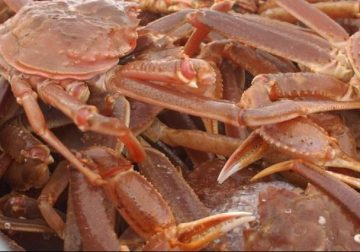 The top executives of Royal Greenland and Ocean Choice International (OCI) noted demand has remained strong for Canadian snow crab in 2017, despite record-high prices caused by reduced supply from the Newfoundland and Labrador fishery. In April, Canada’s Department of Fisheries and Oceans (DFO) cut the 2017/2018 total allowable catch (TAC) for the Newfoundland and Labrador fishery 22% year-on-year — to 35,419 metric tons — causing prices to increase to record levels of over $8 per pound (for 5-8 ounce size crab) during the season, sources said. The Newfoundland season started on April 6 and finished between May and August, depending on the area. click here to read the story 18:38
The top executives of Royal Greenland and Ocean Choice International (OCI) noted demand has remained strong for Canadian snow crab in 2017, despite record-high prices caused by reduced supply from the Newfoundland and Labrador fishery. In April, Canada’s Department of Fisheries and Oceans (DFO) cut the 2017/2018 total allowable catch (TAC) for the Newfoundland and Labrador fishery 22% year-on-year — to 35,419 metric tons — causing prices to increase to record levels of over $8 per pound (for 5-8 ounce size crab) during the season, sources said. The Newfoundland season started on April 6 and finished between May and August, depending on the area. click here to read the story 18:38
Is John Risely out to gut Ocean Choice International like a fish? By Ryan Cleary
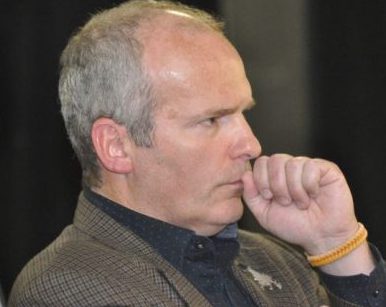 Nova Scotian John Risley who led a hostile takeover of Fishery Products International in 2001 that led to the company’s demise and the loss of hundreds of rural jobs — appears to be attempting another such takeover. This time of Newfoundland and Labrador-based Ocean Choice International — which bills itself as Canada’s “largest wild fish quota holder,” including highly lucrative snow crab, shrimp, scallops, cod, and turbot. If Risley succeeds he could potentially do to OCI what he did to FPI — gut it like a fish. I say that Risley is no friend of Newfoundland and Labrador, and if he gets his hands on OCI’s quotas the Grand Banks will be sold off to the highest bidder.Ryan Cleary is a former Newfoundland and Labrador MP, long-time journalist, and leader of FISH-NL, a group attempting to represent the province’s fish harvesters in a break-away union from the FFAW. Read the full piece, click here 22:21
Nova Scotian John Risley who led a hostile takeover of Fishery Products International in 2001 that led to the company’s demise and the loss of hundreds of rural jobs — appears to be attempting another such takeover. This time of Newfoundland and Labrador-based Ocean Choice International — which bills itself as Canada’s “largest wild fish quota holder,” including highly lucrative snow crab, shrimp, scallops, cod, and turbot. If Risley succeeds he could potentially do to OCI what he did to FPI — gut it like a fish. I say that Risley is no friend of Newfoundland and Labrador, and if he gets his hands on OCI’s quotas the Grand Banks will be sold off to the highest bidder.Ryan Cleary is a former Newfoundland and Labrador MP, long-time journalist, and leader of FISH-NL, a group attempting to represent the province’s fish harvesters in a break-away union from the FFAW. Read the full piece, click here 22:21
Quin Sea sale to Royal Greenland approved by N.L. government
 The Newfoundland and Labrador government has approved the sale of one of the province’s largest fish processors to a Greenland company. The Minister of Fisheries and Aquaculture, Steve Crocker, said in a news release Friday that he has accepted the recommendations of the Fish Processing Licensing Board to have Royal Greenland take over . Quin Sea operates a half-dozen plants in the province — the largest one in Old Perlican, Trinity Bay — processing about 11,000 metric tonnes of seafood every year. Read the rest here and here 11:16
The Newfoundland and Labrador government has approved the sale of one of the province’s largest fish processors to a Greenland company. The Minister of Fisheries and Aquaculture, Steve Crocker, said in a news release Friday that he has accepted the recommendations of the Fish Processing Licensing Board to have Royal Greenland take over . Quin Sea operates a half-dozen plants in the province — the largest one in Old Perlican, Trinity Bay — processing about 11,000 metric tonnes of seafood every year. Read the rest here and here 11:16
Don’t sell off our fishery to Royal Greenland – Time to “rise up,” Newfoundlanders
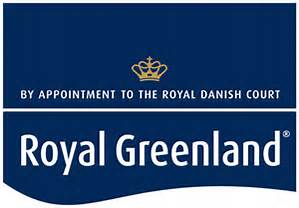 I hope I’m not too late, but what is the status of the Royal Greenland company’s plan to seemingly take over the Newfoundland fishery? If it is still under discussion, then I am probably the least qualified person to be entering this fray, but from reading things from much better informed individuals such as Father Ed Brophy, Gus Etchegary and others, it seems that Newfoundlanders are about to lose control of their fishery to Royal Greenland, a foreign company. This cannot be allowed. Read the rest here by Alun Davies, Outer Cove 12:34
I hope I’m not too late, but what is the status of the Royal Greenland company’s plan to seemingly take over the Newfoundland fishery? If it is still under discussion, then I am probably the least qualified person to be entering this fray, but from reading things from much better informed individuals such as Father Ed Brophy, Gus Etchegary and others, it seems that Newfoundlanders are about to lose control of their fishery to Royal Greenland, a foreign company. This cannot be allowed. Read the rest here by Alun Davies, Outer Cove 12:34
Paul Davis raising questions about sale of Quin-Sea Fisheries and CETA
 Opposition Leader Paul Davis is raising questions about the pending sale of one of Newfoundland and Labrador’s largest seafood companies to a firm wholly. It was revealed last month that a company called Royal Greenland has reached an agreement to purchase Quin-Sea Fisheries Ltd. In a news release issued on New Year’s Eve, PC leader and former premier Paul Davis said he has written the licensing board, urging it to consider a number of questions, including the possibility that a foreign company may gain control of Canadian seafood quotas. Read the article here 16:35
Opposition Leader Paul Davis is raising questions about the pending sale of one of Newfoundland and Labrador’s largest seafood companies to a firm wholly. It was revealed last month that a company called Royal Greenland has reached an agreement to purchase Quin-Sea Fisheries Ltd. In a news release issued on New Year’s Eve, PC leader and former premier Paul Davis said he has written the licensing board, urging it to consider a number of questions, including the possibility that a foreign company may gain control of Canadian seafood quotas. Read the article here 16:35
Must Read – Fears for our fishery, Father Ed Brophy, St. Alban’s
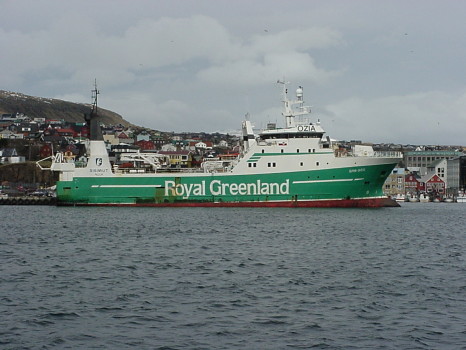 Fellow Newfoundlanders, according to the news, a large Newfoundland fish company called Quin-Sea is about to be taken over by an even larger company from Denmark. The Danish company is called Royal Greenland. I find this disturbing. For me, it is a cause for grave concern. With the stroke of a pen, with the signing of a bill of sale, Royal Greenland of Denmark will be the major shareholder in one of Newfoundland’s largest fish-producing companies. In other words, major decisions about the company, the quotas the catching of shrimp and crab, the production — in fact, all major decisions — could be made by a large company in Denmark. Read the op-ed here, and think! 09:23
Fellow Newfoundlanders, according to the news, a large Newfoundland fish company called Quin-Sea is about to be taken over by an even larger company from Denmark. The Danish company is called Royal Greenland. I find this disturbing. For me, it is a cause for grave concern. With the stroke of a pen, with the signing of a bill of sale, Royal Greenland of Denmark will be the major shareholder in one of Newfoundland’s largest fish-producing companies. In other words, major decisions about the company, the quotas the catching of shrimp and crab, the production — in fact, all major decisions — could be made by a large company in Denmark. Read the op-ed here, and think! 09:23






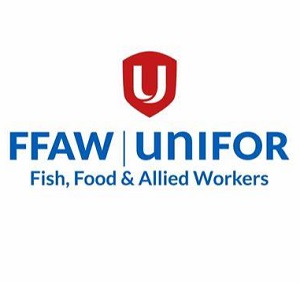 The Fish, Food and Allied Workers Union (FFAW-Unifor) is raising serious concerns after Royal Greenland’s St. Anthony Seafoods (SAS) production plant was found chained shut with “closed” signs posted on the gate, just 48 hours after the company. On Tuesday, FFAW-Unifor tabled its first proposal during negotiations in Deer Lake, focusing on key issues such as voluntary overtime and a guaranteed day of rest per week — standard provisions in fish plant contracts across the province. The company refused to present a counteroffer or engage meaningfully, abruptly leaving the session within the first 10 minutes without explanation. Senior Conciliator, Brian Kenny, from the Government of Newfoundland and Labrador was present to witness the incident.
The Fish, Food and Allied Workers Union (FFAW-Unifor) is raising serious concerns after Royal Greenland’s St. Anthony Seafoods (SAS) production plant was found chained shut with “closed” signs posted on the gate, just 48 hours after the company. On Tuesday, FFAW-Unifor tabled its first proposal during negotiations in Deer Lake, focusing on key issues such as voluntary overtime and a guaranteed day of rest per week — standard provisions in fish plant contracts across the province. The company refused to present a counteroffer or engage meaningfully, abruptly leaving the session within the first 10 minutes without explanation. Senior Conciliator, Brian Kenny, from the Government of Newfoundland and Labrador was present to witness the incident. 